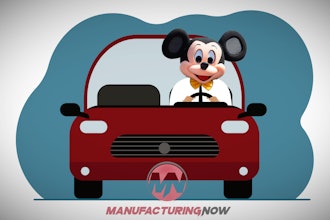by Carrie Ellis, Editor, ChemInfo
I’m admittedly not much of a cook (plus, who has the time?), so I defect frequently to a diverse range of restaurants in Madison, whether chain or independent, and I relish that I have enough freedom to do so. But this year, I’ve found myself surrendering celery at Buffalo Wild Wings. Passing on black pepper at Olive Garden. Avoiding Tylenol. Call me lazy. Call me a pharm snob if you will. But don’t call me uninformed. I’m not only a business-to-business editor for the processing industry, but also an average American consumer. I can get information from anywhere at any time. And I do -- product recalls not excluded.
After considering the many national recalls in 2010 for the November/December issue’s Processing Profile, I’m convinced of two concrete things: We’ve done worse, yet more importantly, we can do better. Compared to 2010’s U.S. recalls, which fill six front-and-back standard 8-1/2- by 11-inch papers (I try to be as environmentally conscious as I can in these bleary-eyed digital ages), 2009 fared exponentially worse, whereas 2008 proved to be better by a long shot. Then again, I’m not sure how to adjust for FDA leniency or stringency, so take these statistics at face value.
I may sound like an annoying alarm clock going off an hour too early. The buzz is not meant to startle, though it is intended to create urgency as there’s no time to waste in preventing the U.S. from suffocating in its own globally competitive mediocrity. That’s why I’m suggesting a newfound focus on quality in case our facilities aren’t already convinced of its value. Most recalls, after all, are either related to food or pharmaceuticals -- a direct personal hit to processing.
Quality control and assurance can and should be the American utilitarian business proposal, particularly when many of our global competitors lack the infrastructure to house -- or the wherewithal to finance -- a qualified quality control and assurance department. During a time when China, and other developing or industrialized nations are struggling to reassure consumers that their food, pharmaceutical, jewelry, automotive, etc. industries are safe, why don’t we flex our nostalgic muscle and travel back to when the U.S. signified brand integrity?
I think that quality control and assurance is something we can still differentiate ourselves by, even hang our hats on. Why not fill the niche that others, including the U.S. as of late, so easily forget about in an effort to compete on cost, and cost only? Quality could be the key after all, but it requires capital. The question is whether we can make it worth the investment. I believe so. Quality is one of the cornerstones on which we built and sustained our manufacturing prowess. Why lose sight of it now just because we’ve subjected our industry to compete in a global price war on an unlevel playing field?
I say "unlevel" because we have more safety and environmental regulations than most countries, but these could be the very differentiators that strengthen the industry. We may be able to market our quality as unrivaled. It wouldn’t be easy. The most difficult part, however, is to not only convince our investors that it’s worth it, but also convince the world to pay for it through trickle-down prices.
No longer does the size, shape or color of currency matter. The dollar is weak. The U.S. must do something different to maintain its No. 1 economy status. China is creeping up rapidly, thus we must learn to compete just as swiftly.
We can no longer stand complacent with our successes. We can’t just say, "We’re No. 1;" we have to follow through and act like it. Although we’ve set the global precedent for a long time, we can’t afford to stand by preaching its benefits without performance or proof. That means quality control and assurance (don’t forget documentation, friends). Right now, it may be all that we have to lean on. Prepare to sell quality or be sold by competitive undercut pricing.
Moving forward (re)calls for a plan of action, re-introducing the U.S. as the home of quality. If we can prove a statistical difference, the results -- at least, for a discerning consumer base -- should speak for themselves. Re-establish our industry as something we can all believe in, nationally and globally, and in good conscience. It’s the only way to keep appealing to discriminating tastes before they discriminate against us permanently ... and for potentially good reasons.
What's your take? E-mail me at [email protected].
I’m admittedly not much of a cook (plus, who has the time?), so I defect frequently to a diverse range of restaurants in Madison, whether chain or independent, and I relish that I have enough freedom to do so. But this year, I’ve found myself surrendering celery at Buffalo Wild Wings. Passing on black pepper at Olive Garden. Avoiding Tylenol. Call me lazy. Call me a pharm snob if you will. But don’t call me uninformed. I’m not only a business-to-business editor for the processing industry, but also an average American consumer. I can get information from anywhere at any time. And I do -- product recalls not excluded.
After considering the many national recalls in 2010 for the November/December issue’s Processing Profile, I’m convinced of two concrete things: We’ve done worse, yet more importantly, we can do better. Compared to 2010’s U.S. recalls, which fill six front-and-back standard 8-1/2- by 11-inch papers (I try to be as environmentally conscious as I can in these bleary-eyed digital ages), 2009 fared exponentially worse, whereas 2008 proved to be better by a long shot. Then again, I’m not sure how to adjust for FDA leniency or stringency, so take these statistics at face value.
I may sound like an annoying alarm clock going off an hour too early. The buzz is not meant to startle, though it is intended to create urgency as there’s no time to waste in preventing the U.S. from suffocating in its own globally competitive mediocrity. That’s why I’m suggesting a newfound focus on quality in case our facilities aren’t already convinced of its value. Most recalls, after all, are either related to food or pharmaceuticals -- a direct personal hit to processing.
Quality control and assurance can and should be the American utilitarian business proposal, particularly when many of our global competitors lack the infrastructure to house -- or the wherewithal to finance -- a qualified quality control and assurance department. During a time when China, and other developing or industrialized nations are struggling to reassure consumers that their food, pharmaceutical, jewelry, automotive, etc. industries are safe, why don’t we flex our nostalgic muscle and travel back to when the U.S. signified brand integrity?
I think that quality control and assurance is something we can still differentiate ourselves by, even hang our hats on. Why not fill the niche that others, including the U.S. as of late, so easily forget about in an effort to compete on cost, and cost only? Quality could be the key after all, but it requires capital. The question is whether we can make it worth the investment. I believe so. Quality is one of the cornerstones on which we built and sustained our manufacturing prowess. Why lose sight of it now just because we’ve subjected our industry to compete in a global price war on an unlevel playing field?
I say "unlevel" because we have more safety and environmental regulations than most countries, but these could be the very differentiators that strengthen the industry. We may be able to market our quality as unrivaled. It wouldn’t be easy. The most difficult part, however, is to not only convince our investors that it’s worth it, but also convince the world to pay for it through trickle-down prices.
No longer does the size, shape or color of currency matter. The dollar is weak. The U.S. must do something different to maintain its No. 1 economy status. China is creeping up rapidly, thus we must learn to compete just as swiftly.
We can no longer stand complacent with our successes. We can’t just say, "We’re No. 1;" we have to follow through and act like it. Although we’ve set the global precedent for a long time, we can’t afford to stand by preaching its benefits without performance or proof. That means quality control and assurance (don’t forget documentation, friends). Right now, it may be all that we have to lean on. Prepare to sell quality or be sold by competitive undercut pricing.
Moving forward (re)calls for a plan of action, re-introducing the U.S. as the home of quality. If we can prove a statistical difference, the results -- at least, for a discerning consumer base -- should speak for themselves. Re-establish our industry as something we can all believe in, nationally and globally, and in good conscience. It’s the only way to keep appealing to discriminating tastes before they discriminate against us permanently ... and for potentially good reasons.
What's your take? E-mail me at [email protected].






















